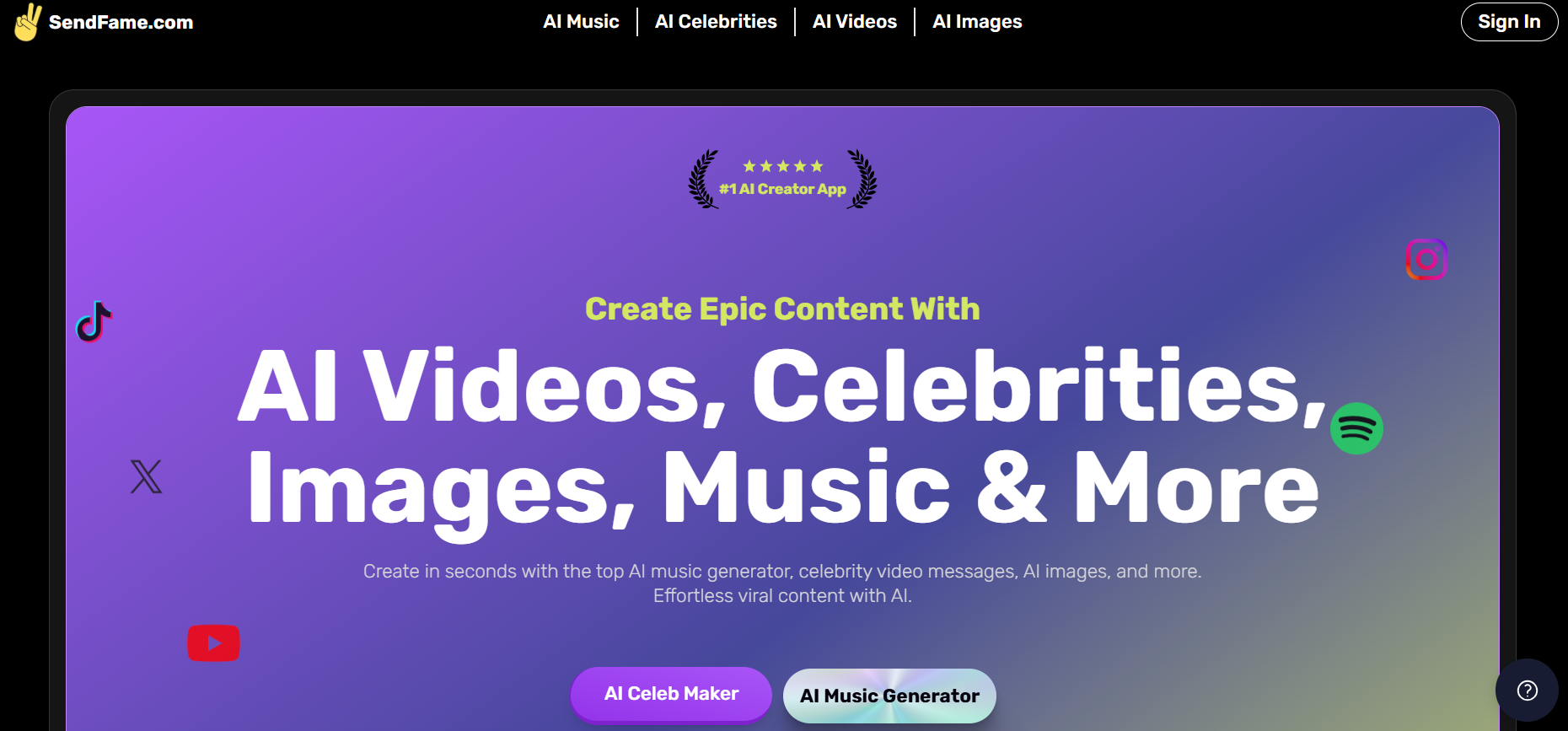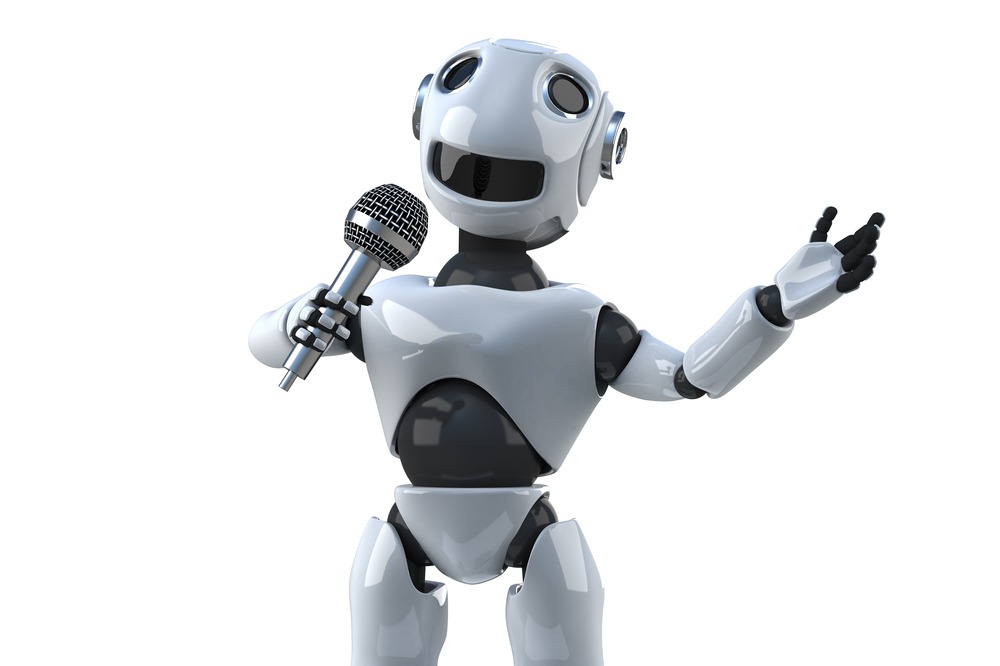Can An AI Sing A Song? Exploring The Voice Of Machines
Have you ever stopped to ponder if a machine, something built from code and data, could truly belt out a tune? It's a question that, you know, really gets people thinking these days. For a long time, the idea of a computer creating music, let alone singing, felt like something right out of a science fiction story. Yet, here we are, watching technology push the boundaries of what we once thought possible.
The very word "can" suggests ability, a capacity to do something, doesn't it? As my text highlights, "you use can to indicate that someone has the ability or opportunity to do something." So, when we ask, "Can an AI sing a song?", we're really asking about its capacity, its power, or even its skill in this very human art form. It's a fascinating area where creativity meets computation, and the results are, honestly, quite surprising.
This discussion goes beyond just technical capabilities, too. It touches on what we consider art, emotion, and the unique human touch in performance. We're going to look at how AI is learning to create vocal sounds, compose melodies, and even, in a way, express itself through song. It's a journey into the heart of artificial intelligence and its growing role in creative pursuits, which is, well, rather compelling.
Table of Contents
- What Does It Mean for an AI to Sing?
- The Mechanics of AI Singing: How It Works
- The Evolution of AI in Music
- AI Singing and the Human Element
- Challenges and Considerations
- The Future of AI Singing
- Frequently Asked Questions
What Does It Mean for an AI to Sing?
When we talk about an AI singing, it's not quite like a person opening their mouth and producing sounds. Instead, it involves complex algorithms that generate vocal tracks. This could mean creating new melodies and lyrics, or it could involve replicating the voice of an existing singer. It's a process that combines elements of sound engineering, data analysis, and, in some respects, artistic interpretation. The goal is to produce something that sounds, well, like a song, with a vocal part that carries a tune and, sometimes, conveys feeling. This capability is, you know, a big step for machines.
The "can" in our question really points to the AI's capability. As the text mentions, "The word can is a modal verb that is used to indicate the ability or capability of someone or something to do a specific action or task." So, does AI possess the ability to perform the "task" of singing? Technically, yes, it can generate audio that sounds like singing. But the deeper question is whether it has the "power or skill" in the same way a human does, which is, quite frankly, a different kind of thought. It's not just about making noise; it's about making music, you see.
AI singing also means a machine can produce a vocal performance that fits a specific musical piece. This might involve adjusting pitch to match a melody, changing the timing to fit a rhythm, or even altering the tone to suit a certain mood. It's a bit like a highly skilled vocal engineer working at incredible speed. The output is a digital audio file, and that file, you know, can be indistinguishable from a human recording in some cases. This shows the significant progress in the field, actually.
The Mechanics of AI Singing: How It Works
To understand if an AI can sing, we need to look at how these systems are built. They don't just magically produce music. Instead, they learn from vast amounts of existing audio data, which is, in a way, their schooling. This data includes everything from human voices singing different styles and genres to instrumental pieces. The AI then identifies patterns, tones, rhythms, and vocal nuances, learning what makes a song sound like a song. It's a bit like a student studying music theory and vocal techniques, but on a scale that's, quite frankly, enormous. This learning process is, you know, very important.
This learning process allows the AI to then generate new audio. It's not simply playing back recordings; it's creating something new based on what it has learned. Think of it like a very advanced mimic, but one that can also improvise. The systems are becoming more sophisticated, allowing for greater control over the generated voice's pitch, timbre, and even the emotional delivery, which is, you know, rather impressive. The technology behind this is, in fact, quite complex, involving neural networks and deep learning models.
These AI models are trained on massive datasets of human singing. They analyze the relationship between text (lyrics), melody, rhythm, and vocal characteristics. By processing millions of examples, the AI learns to predict what sounds should follow each other to create a cohesive and natural-sounding vocal performance. It's similar to how a human learns to speak or sing by listening and imitating, but the AI does it with a computational approach, so. This training is what gives the AI its "ability" to sing, as the word "can" suggests.
Vocal Synthesis and Cloning
One primary way AI sings is through vocal synthesis. This involves creating a voice from scratch, or modifying an existing one. Early versions might have sounded a bit robotic, but modern systems are, very, very good at making voices sound natural. Some AI tools can even "clone" a voice, meaning they can learn the unique characteristics of a specific person's voice and then generate new speech or singing in that voice. This is done by analyzing recordings of the target voice, picking up on everything from vocal texture to speaking patterns. It's a powerful capability that, in some respects, raises questions about authenticity and ownership. This technology, you know, is quite advanced.
This technology is, for instance, used in text-to-speech systems that sound increasingly human-like. When applied to singing, it means an AI can take lyrics and a melody and produce a vocal track that sounds like a real singer. It's not just about hitting the right notes; it's also about adding subtle vocalizations, like breaths or slight variations in pitch, that make a performance feel, you know, genuine. The progress here is, honestly, quite rapid. You can even find services that allow you to create a voice from just a few minutes of audio, which is, pretty remarkable.
The ability to

How to Make AI Sing a Song with SendFame

The AI Pop Star Learning to Sing Like a Human | Discover Magazine

AI Singing Voice Generator - voice.ai